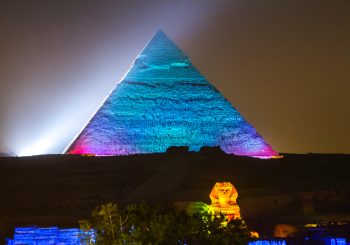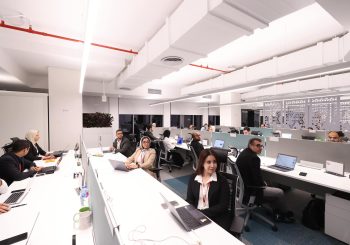
As the first large-scale project aimed to fight poverty across rural Egypt, Egypt’s President Abdel Fattah Al-Sisi inaugurated the first phase of the ‘Decent Life’ (Haya Karima) initiative at the Cairo International Stadium on Thursday.
Al-Sisi declared that the initiative sets off “Egypt’s new republic” in his speech. “I am declaring the beginning of Egypt’s new republic, as this is the largest project aimed at upgrading and developing the Egyptian countryside.”
The initiative aims to provide decent housing, water and sanitation, medical and educational services, support small and medium businesses, and provide in-kind support periodically for struggling families. Al-Sisi added that the project aims to raise the standards of living of 58 million Egyptians in more than 4,000 villages over three years at a cost of more than EGP 700 billion (about $44.6 billion).
In January 2019, the first phase was launched targeting 1,000 villages across Egypt. By January 2021, the government increased the number of targeted villages to more than 4,000, representing 58% of the Egyptian population.
Executive Director at the International Monetary Fund (IMF), Dr. Mahmoud Mohieldin noted that the United Nations considers the Haya Karima national project as an excellent example for localizing the sustainable development goals, and that it will contribute to providing essential job opportunities for Egyptians in impoverished areas.
Minister of Planning and Economic Development Hala Al-Said explained that the 2021-22 plan for the initative aims to establish 10,828 classrooms, develop 782 youth centers, develop 317 public service buildings, develop 1,250 health care units, provide 389 ambulances and 510 mobile clinics, establish and develop 112 veterinary units and establish 191 agricultural service centers.
Since its launch, the initative has already taken key steps in developing water and sanitation services in 33 villages in Suhag at a cost of EGP 356 million, renovate old transport stations at a cost of EGP 183 million, and established new transport stations at a cost of EGP 219 million.
The initiative also aims to develop key infrastructure in the poorest villages, such as developing bridges, establish 1,388 roads and build 162 new youth centers.
Egypt has suffered from a rising poverty rate over the years, with 32.5 percent of Egyptian citizens reported to be living below the poverty line in 2019, which is a 4.7 percent increase from 2015, according to the Central Agency for Public Mobilization and Statistics (CAPMAS).
In 2016, the Executive Board of the International Monetary Fund (IMF) approved a three-year extended arrangement for Egypt for an amount equivalent to US$12 billion to support the economic reform program, which included a sharp devaluation of the Egyptian pound and the introduction of a value-added tax aimed to restore investor confidence, rebuild international reserves, and encourage private sector-led growth.
However, the IMF economic reform programs have been under heavy criticism over the past few years for increasing poverty levels and government debts in the developing world, as debt was equal to 93 percent of GDP in June 2018 in Egypt.







Comments (9)
[…] ‘The dawn of a new republic’: Egypt launches largest anti-poverty initiativeinitiatie […]
[…] Legu la kompletan artikolon en la originala lingvo : English […]